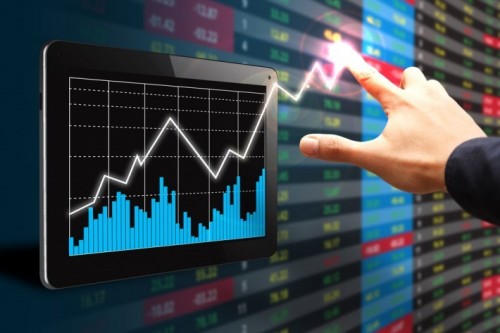
With fewer regulations limiting who can take part and what they can do over other forms of derivatives trading, CFD trading is growing more and more popular. There’s still some controversy around it, however, that stems in part from the fact that a lot of people are not quite sure how it works. In fact, it’s simpler than you might think.
What is a CFD?
CFD is an acronym that stands for Contract for Difference. It refers to the difference between the value of an asset at the time the contract is agreed and its value at the time when the sale is finalized. Crucially, it’s possible to trade in CFDs without having to own (or purchase) the assets on which they’re based. They can be used to speculate on the changing value of many different commodity types, including shares, bonds, stock indices and currencies.
What does CFD trading involve?
When you sell a CFD, you agree to pay the difference described by the contract if the value of an asset has increased in value. If it has decreased in value, the buyer agrees to pay you the difference. That enables you to take advantage of long positions (prices rising) or short positions (prices falling) depending on your trading position, as long as you’re able to predict the shift in values correctly. As in other areas of trading, there are no guarantees, but you can increase your chances of success by studying the markets, identifying the best stocks to day trade, and making sure that the odds are in your favor.
The difference between values when it’s time to pay is known as the spread. The narrower the spread, the less the market needs to move to increase your profits – or your losses.
Margin and leverage
When you’re using CFDs to speculate on the markets, you generally won’t make much from each individual one, so you need to be able to trade in quantity in order to make good returns. That means that you need plenty of leverage. The good news is that providers generally allow higher leverage on CFDs than on just about anything else, and they do so at lower marginal rates. As always when using leverage, however, it’s important to remember that your losses can potentially exceed your deposit, so you will need to keep a level head.
Advantages of CFD trading
Why choose CFDs over other types of derivatives? There are several good reasons:
— 24-hour access – you can trade CFDs in any part of the world, so the markets are open almost continually, making it easy to fit trading around your other activities.
— Flexibility – you can trade on falling markets just as easily as on rising ones, without facing significant restrictions.
— Limited costs – when you sell short you won’t have to pay borrowing costs because you don’t own the asset underlying the contract.
— Convenience – CFDs usually apply for just a few days or a few weeks at most, so you can make money in a short period of time with no lasting commitments.
Hedging with CFDs
Because they allow you to sell short and thus profit from falling markets, CFDs can be used for hedging, effectively acting as a form of insurance on traditional assets. When an asset falls in value, the losses incurred can be offset by gains made through short selling CFDs. That fact makes them popular with large investors wishing to hedge their portfolios, and it can also be practical for individuals who want protection when investing their savings.
Risks of CFD trading
Part of what makes CFDs attractive is that there is very little regulation surrounding them, but this does have its downside, and there is a risk of getting caught up in scams. To cover that risk you should be cautious about your choice of broker and value a good reputation rather than simply going for what look like better deals.
It’s very easy to get excited about this form of trading, but if you let yourself get carried away, you could get into serious losses. Set yourself a trading limit and stick to it – even if you’re doing really well, and even if you’re doing badly and want to see your luck even out. It’s important not to let sentiment or wishful thinking cloud your decision-making.
If you’re careful about how you approach CFD trading, and have good self-discipline, there’s no reason why you shouldn’t make a success of it. It’s not really a complicated concept and as you get more experienced you’ll find that trading becomes an increasingly intuitive process. As with other forms of trading it’s really about anticipating what assets are worth and accounting for what other people are likely to think they are.
 SU
SU REDDIT
REDDIT







